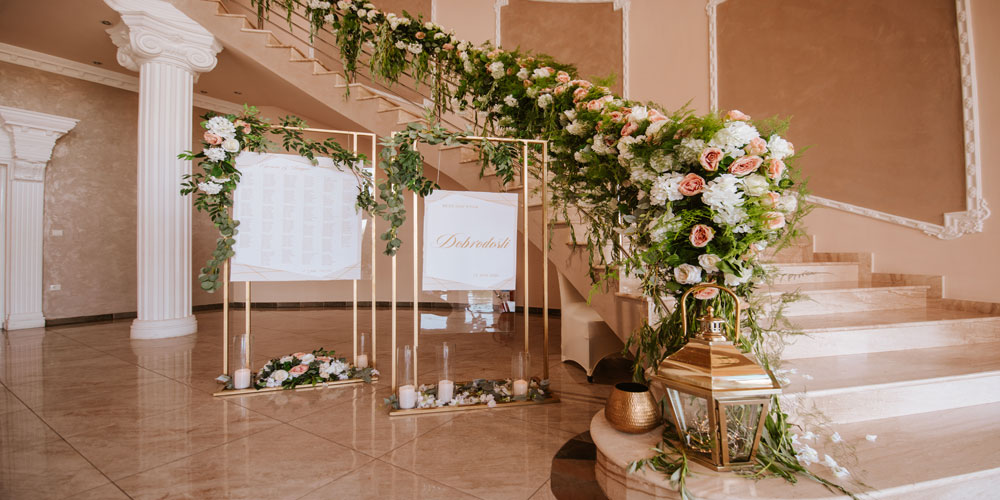Finding the Perfect Wedding Venue
Finding the perfect wedding venue is a pivotal step in planning your big day. It’s where memories are made, where the essence of your relationship is celebrated, and where you’ll spend some of the most important hours of your life. With so many options available, from traditional churches and banquet halls to beaches, barns, and even castles, choosing the right venue can be overwhelming. Here’s a comprehensive guide to help you navigate through the process and find the perfect wedding venue.
1. Define Your Vision
Before you start your search, it’s crucial to have a clear vision of what you want your wedding to look like. Do you envision a classic, elegant affair in a grand ballroom, or a rustic, intimate gathering in a charming barn? Here are some questions to help clarify your vision:
- Style and Theme: What style appeals to you? Modern, vintage, rustic, beachy, garden, or something else?
- Size: How many guests are you planning to invite? This will significantly impact your venue choices.
- Location: Do you want to stay local, have a destination wedding, or meet somewhere in between?
- Indoor vs. Outdoor: Consider the time of year and weather when deciding between an indoor or outdoor venue.
2. Set Your Budget
Your budget will play a significant role in determining your venue options. It’s essential to allocate a portion of your overall wedding budget to the venue and stick to it. When budgeting for your venue, remember to include the following:
- Rental Fee: This is the cost of renting the venue for a specified period.
- Catering and Bar Service: Some venues offer in-house catering, while others require you to hire an external caterer.
- Decorations and Rentals: Depending on the venue, you might need to budget for additional decor, furniture, and other rentals.
- Additional Fees: These can include service charges, taxes, and gratuities.
3. Research and Shortlist Potential Venues
Start your search online, using wedding websites and directories to find venues that fit your criteria. Pay attention to reviews and ratings from other couples. Here’s how to create a shortlist:
- Online Research: Websites like The Knot, WeddingWire, and even Instagram and Pinterest can provide ideas and reviews.
- Recommendations: Ask friends, family, and recently married couples for recommendations.
- Bridal Shows and Expos: These events often showcase a variety of venues and provide an opportunity to speak directly with venue representatives.
4. Schedule Venue Tours
Once you have a shortlist, it’s time to visit the venues in person. Pictures can be deceiving, and a venue might look different in reality. When visiting, consider the following:
- Ambiance and Décor: Does the venue match your vision and theme?
- Layout and Space: Ensure there is enough space for all activities, including the ceremony, reception, dining, and dancing.
- Facilities: Check the condition of restrooms, kitchens, and other facilities.
- Accessibility: Consider the convenience for your guests, including parking, accommodation, and transportation options.
- Staff and Service: Pay attention to the professionalism and friendliness of the staff.
5. Ask the Right Questions
During your tour, it’s essential to ask detailed questions to ensure the venue meets all your needs. Here’s a list to get you started:
- Availability: Is your desired date available? Can they accommodate your timeline for setup and teardown?
- Capacity: What is the maximum number of guests the venue can comfortably accommodate?
- Catering and Alcohol Policies: Do they provide in-house catering, or can you bring an external caterer? What are the options and costs for bar service?
- Rental Inclusions: What is included in the rental fee (tables, chairs, linens, etc.)?
- Vendor Policies: Are there preferred or required vendors? Are there restrictions on vendors you can bring in?
- Backup Plans: For outdoor venues, what are the backup plans in case of bad weather?
- Insurance and Permits: Are there any required insurance policies or permits?
6. Evaluate Logistics and Practicalities
Beyond aesthetics, it’s crucial to consider the practical aspects of each venue:
- Travel and Accommodation: Consider how far your guests will need to travel and the availability of nearby accommodation.
- Parking and Transportation: Ensure there is ample parking or convenient transportation options for guests.
- Timing and Noise Restrictions: Check for any time limits on events or noise restrictions that might affect your celebration.
- Accessibility: Ensure the venue is accessible for all guests, including those with disabilities.
7. Compare and Negotiate
After visiting and gathering information from multiple venues, compare them based on your priorities and budget. Consider creating a spreadsheet to track the pros and cons of each option. When you have narrowed it down to your top choices, don’t be afraid to negotiate. Some venues might be willing to offer discounts or additional services, especially if you’re flexible with your date or booking during off-peak seasons.
8. Read the Fine Print
Before making a final decision, carefully review the contract. Ensure all details, including dates, times, fees, and policies, are clearly stated. Look for the following:
- Payment Schedule: Understand the deposit required and the payment schedule.
- Cancellation Policy: Know the terms and conditions for cancellations and refunds.
- Liability: Ensure you understand who is responsible for damages or accidents.
- Restrictions: Be aware of any restrictions regarding decorations, vendors, noise, etc.
9. Make Your Decision
Once you’ve thoroughly vetted all options and are confident in your choice, secure your venue by signing the contract and paying the deposit. Celebrate this milestone – you’ve taken a significant step towards your dream wedding!
10. Plan for the Unforeseen
Even with the best planning, unforeseen issues can arise. Here are a few tips to prepare for the unexpected:
- Insurance: Consider wedding insurance to protect against unforeseen circumstances such as vendor cancellations or extreme weather.
- Backup Plan: Have a contingency plan for bad weather, especially for outdoor venues.
- Coordinator: Consider hiring a wedding planner or day-of coordinator to handle any last-minute issues and ensure everything runs smoothly.
Types of Wedding Venues to Consider
Here are some popular types of wedding venues and their unique characteristics:
- Ballrooms and Banquet Halls: Ideal for large, formal weddings with ample space for dining and dancing.
- Barns and Farms: Perfect for rustic, country-themed weddings with a charming and relaxed atmosphere.
- Beaches and Waterfronts: Great for couples dreaming of a picturesque, outdoor ceremony by the water.
- Gardens and Parks: Offer a beautiful, natural setting for outdoor ceremonies and receptions.
- Historic Sites and Castles: Provide a romantic and unique backdrop with a sense of history and grandeur.
- Hotels and Resorts: Convenient for destination weddings with comprehensive packages including accommodation, catering, and more.
- Private Estates and Villas: Ideal for intimate, exclusive weddings with a luxurious feel.
Final Thoughts
Finding the perfect wedding venue is a journey that requires time, research, and careful consideration. It’s about more than just a beautiful space; it’s about finding a place that resonates with you as a couple and aligns with your vision for your big day. By following these steps, you can navigate the process with confidence and ease, ensuring that your chosen venue sets the perfect stage for a day you’ll cherish forever.
Remember, the best venue is one that reflects your love story, meets your practical needs, and makes you feel excited and at peace. Happy venue hunting!



